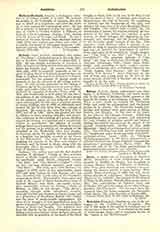

Barbus, PAULUS, Italian philosopher and theologian, b. at Soncino, Lombardy, and hence known also by the name of Soncinas which appears at the head of his books; d. at Cremona, August 4, 1494. When a mere youth he entered the Dominican Order and made his philosophical and theological studies in its schools. He afterwards taught philosophy and theology with great success at Milan, Ferrara, and Bologna. At the time of his death he was prior of the Cremona Convent. Exhibiting extraordinary intellectual powers, and expressing his deep thoughts in eloquent speech and finished writing, he merited and received the esteem of his learned contemporaries, notably of Pico dells Mirandola. Many of his writings were lost at an early date. The following have been printed frequently: (I) “Quaestiones super divinae sapientiae Aristotelis” (principal edition, Lyons, 1579); (2) “Divinum Epitoma quaestionum in IV libros sententiarum a principe Thomistarum Joanne Capreolo Tolesano disputatarum” (principal edition, Pavia, 1522). The place and date of (3) “In libros praedicabilium et praedicamentorum expositio” are unknown.
ARTHUR L. MCMAHON

